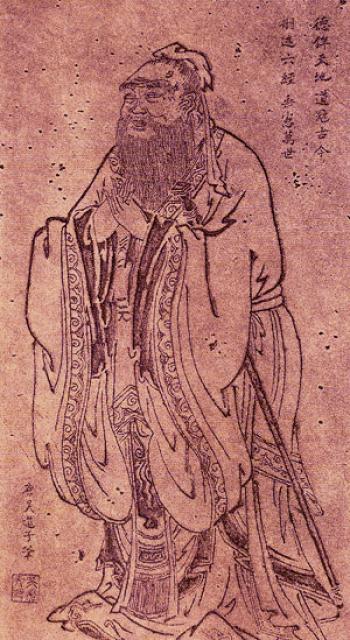 This is Part Two of my “interview” highlighting key ideas from Bongrae Seok’s Moral Psychology of Confucian Shame: Shame of Shamelessness (MPCS). In Part One, we considered why Confucian shame is a “moral emotion” whereby one internalizes virtues or goals.
This is Part Two of my “interview” highlighting key ideas from Bongrae Seok’s Moral Psychology of Confucian Shame: Shame of Shamelessness (MPCS). In Part One, we considered why Confucian shame is a “moral emotion” whereby one internalizes virtues or goals.
By understanding moral shame, we can better see how shame works in various human cultures and how it applies to the Christian life.
Guilt versus Shame
JWu: A passage often cited in MPCS comes from Analects 2:3, where Confucius says,
“If the people are led by laws, and uniformity among them be sought by punishments, they will try to escape punishment and have no sense of shame. If they are led by virtue, and uniformity sought among them through practice of ritual propriety, they will possess a sense of shame and come to you of their own accord.”[1]
This quote describes the advantage of shame over the mere use of laws. Explicit rules help people feel a sense of guilt. Can you explain the difference between people having a sense of guilt versus feeling shame in the moral, Confucian sense?
MPCS:
“[G]uilt focuses on the negative effects of one’s action to others from the perspective of general rules or universal principles, but shame focuses on people and their personal relations. Even though it does not regulate behaviors on the basis of formal duties and responsibilities, it develops a concrete understanding of social reality and personal concern for others and their views.
[Williams] states that shame ‘requires an internalized other who is not designated merely as a representative of an independently identified social group, and whose reactions the agent can respect. At the same time this figure does not merely shrink into a hanger for those same values but embodies intimates of a genuine social reality—in particular of how it will be for one’s life with others if one acts in one way rather than another’ (Williams, 1993, p. 102).
That is, shame, in comparison to guilt, has an advantage of facilitating a sense of morality concretely rooted in the particularities of social relations” (p. 134).
3 Features of Confucian Shame
JWu: What you describe sounds a lot like what Christians mean when speaking of a “new heart.” According to the New Covenant, God writes his Law on our hearts (Jer 31:31-34; Ezek 36:26).
While not identical, the book looks at some dynamics in Confucian shame that are at least analogous to a Christian “sense of shame.” What are the 3 features of Confucian moral shame?
MPCS:
First, Confucian moral shame is idealized. One’s “audience” is an ideal moral authority, a role model, whether existing in reality or not. This was discussed above. Second, it is internalized.
“Shame is no longer felt as one’s sense of others’ expectations or external sanctions but of one’s own ideal norms and self-regulative goals” (p. 135). “Internal shame is an inner emotion of shame that results from one’s awareness of a conflict between one’s behavior and one’s internalized social or moral codes” (p. 140).
JWu: At one place, you write “should not internalize public opinion but counterbalance it” (p. 143). Moral shame concerns what we internalize?
MPCS:
Yes, “ideal moral internalization is the essence of Confucian shame” (p. 143). As Xun Yue says, “The fundament is to have shame before oneself” (p. 142).
“….In Western philosophy and psychology, shame is typically understood as one’s self-critical emotion of being watched and judged by others. This type of shame is external because it is based on an external authority and its norms and judgments. A person feels external shame by following a moral authority other than one’s own. Under external shame, individuals do not have inner authority over their actions and decisions” (p. 140).
JWu: In Western culture, people tend to view shame almost entirely negative. Why? You seem to explain it by saying that Westerners understand the “self” differently than does Confucian thinking.
MPCS:
“Westerners tend to view a person as “an autonomous individual who maintains a fully established identity and persists through temporal and spatial changes”; from a Confucian perspective, an individual… is understood as “an undetermined range and locus of experiences expressed through specific roles and relationships” (p. 136).
In early Confucianism, the self is a “relational entity. It is always in the process of construction and revision. It is always receptive and reactive to environmental conditions and changes. Its identity is not defined independently of its incessant interaction with its surroundings. Its individuality is determined continuously by its relations to others” (p. 136).
JWu: This is the third feature of Confucian moral shame. It is interactive because the self is an interaction of our relationships, roles, and experiences.
MPCS:
Yes, “Shame provides this sense of a communal self” (p. 45).
Put simply, “The self or the person does not refer to the permanent or essential core of human beings, but the dynamic integration of interactive and relational potentials of an individual” (p. 136).
JWu: Why then does shame tend to be viewed as “dangerous” in the West?
….. to be continued in the next post












